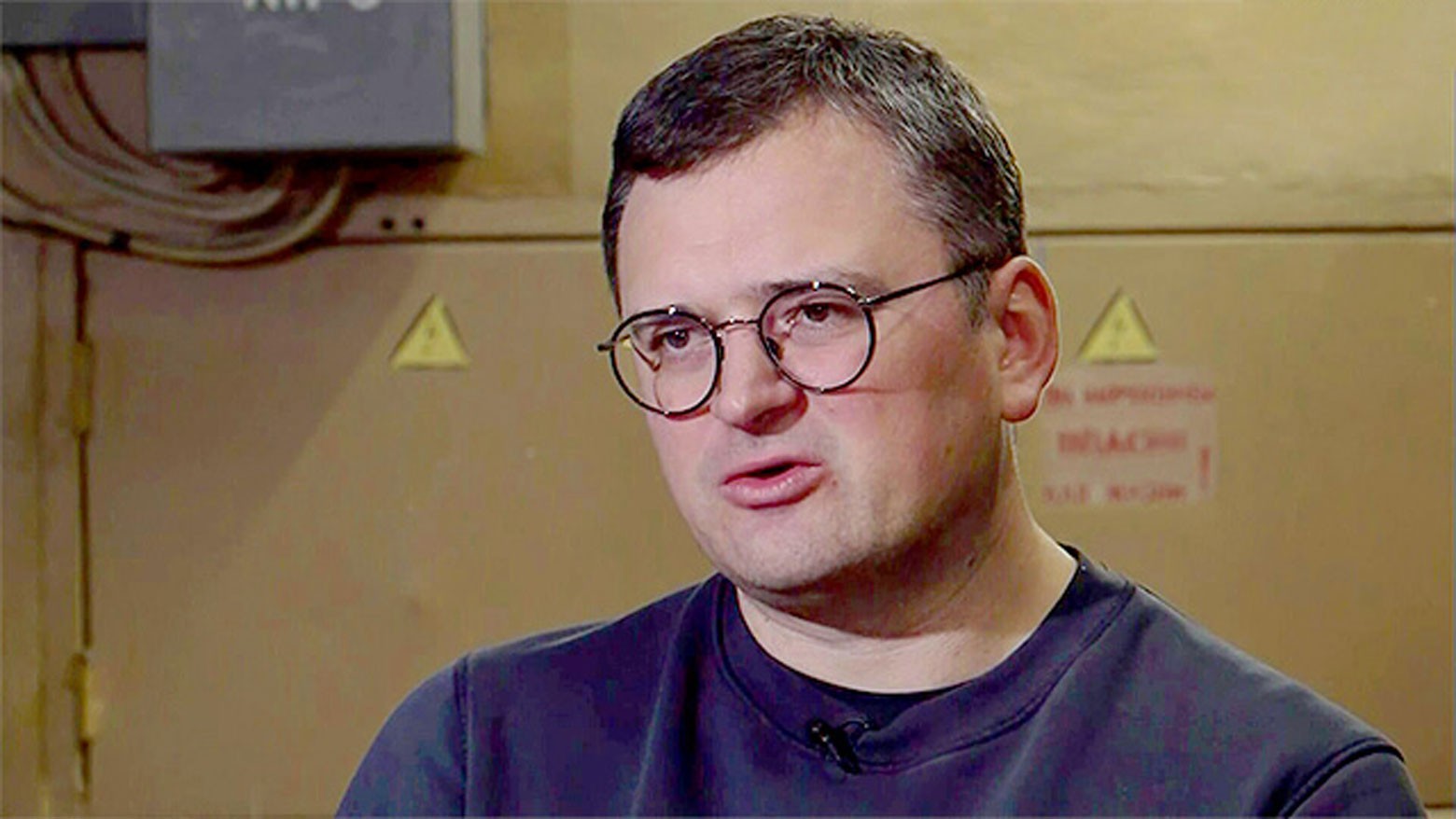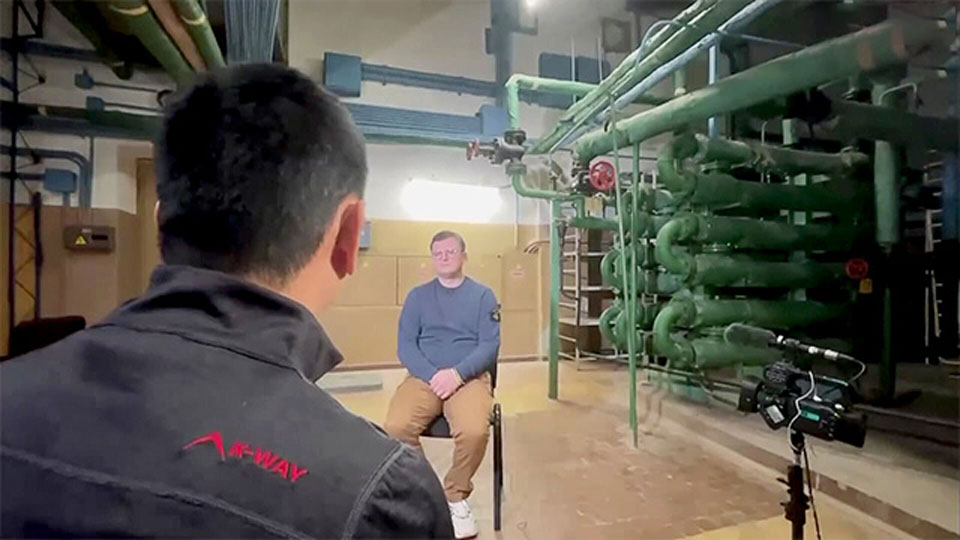
NHK: How severe do you expect things to get this winter?
Kuleba: It will be pretty hellish. You can already see from Russia's actions that they will not stop. This is why it is so critically important to provide Ukraine as soon as possible with air defense and with energy equipment like generators, transformers. I appreciate the decision of the Japanese government to make non-military energy contributions and help us to cope with it. We will survive. It will be extremely difficult for some civilians. But we will be helping each other. We will be giving a hand to each other. We will be warming each other up and we will survive. Putin is stupid if he thinks that he can break us and break us down. He doesn't know anything about Ukrainians if he believes so.
Will Ukraine continue to fight back against Russia?
Yes, we should go on and we will go on because we are defending our land, our people and we know what is at stake. Every time we liberate [a] city, we find a torture room. We find mass graves. We hear tons of stories about persecution by Russian authorities, and occupational authorities. It's not just a fight for territory. We are saving our people from Russian criminals. And when you know what is at stake, you find the way to survive blackouts, the absence of water and missile attacks. You adapt with only one goal — to survive and to prevail. And this is what is going to happen.
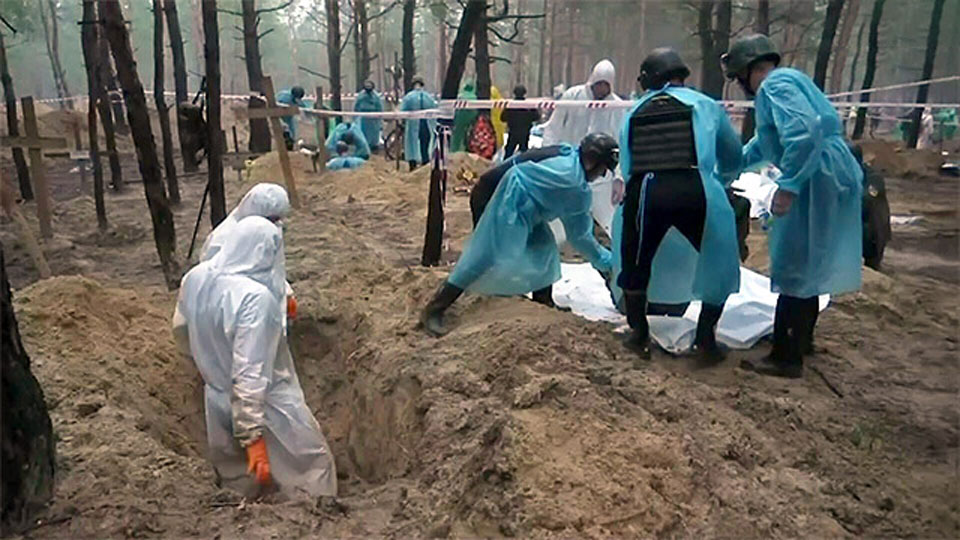
Is there any possibility of holding ceasefire talks with Russia?
Two hours before this interview started, Ukraine was hit with around 70 Russian missiles and drones. The entire country was blacked out. There is no water supply across the entire country of 40 million. Does that speak for Russia's willingness to negotiate? Those who are talking about negotiations with Russia, about dynamics of negotiations, have to accept one fact: No indicator speaks for the readiness of Russia to negotiate.
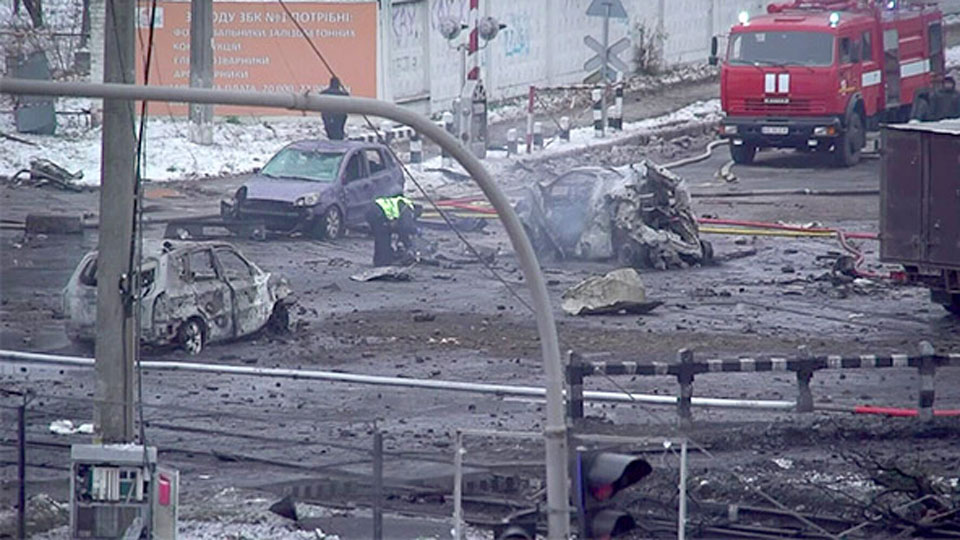
Are you annoyed by some of your partners telling you to start negotiations with Russia now?
I'm not annoyed because no one is telling us this. I know there are media reports and discussions. No, this is not happening. No one is instructing us or putting pressure on us to begin negotiations with Russia, because they all understand the reality on the ground.
What do you think about the missiles that hit Poland in mid-November?
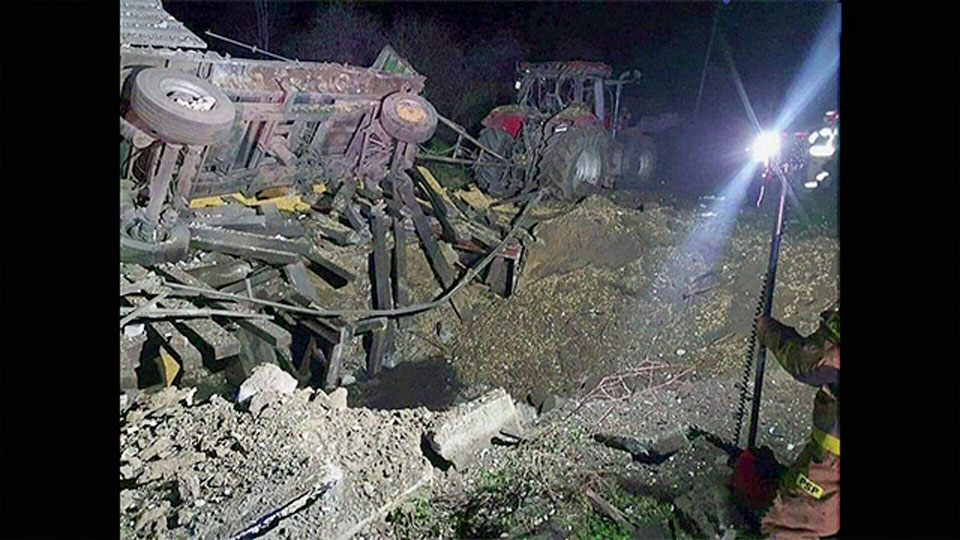
The investigation is ongoing. We heard a statement on the night of the incident that it was allegedly a Ukrainian air defense missile that unintentionally landed in the territory of Poland. We responded in the following way: We said we have to investigate. Our prosecutors are now working closely with Polish prosecutors to exchange all evidence.
No one is accusing us of being intentional or trying to conceal the truth about this incident. Quite the contrary. We are investigating it in the most transparent way, and we are ready to cooperate with our partners in the most constructive way. Poland and other European friends understand one very simple thing. Ukraine is fighting a war against a much stronger enemy. And on the day this incident happened, I think around 100 Russian missiles and Iranian drones were hitting targets in Ukraine.
So if the truth is established -- and it might be an unfortunate truth for the Ukrainian side -- are you ready to admit it and move on with your partners in a constructive way?
If the conclusions [are] based on proper investigation and exchange of evidence, we will have no problem accepting it. We are not hiding. We want transparent and comprehensive investigation. And this is what is already happening.
Some Asian and African countries have opted not to condemn Russia. What is your take on this?
I'm not aware of any country in Asia, except maybe North Korea, who would be supportive of Russia's aggression against Ukraine. However, too many Asian nations prefer to remain so-called neutral with regard to this war. While they all sympathize with Ukraine behind closed doors, they either prefer to split responsibility between both Russia and Ukraine or simply remain quiet on this war waged by Russia. And I think it's unfair.
But since we are talking about politics, where categories of justice and fairness are not always the most relevant, I think they are also making a strategic mistake with regard to their own security. If they, by their game of neutrality, allow Russia to prevail, it will mean only one thing for the rest of the world: That international law doesn't exist. That borders can be reshaped by force and that there will be no one who can stop a perpetrator of aggression from committing war crimes, torturing and killing civilians. So if Asian nations are serious about their own security and they want international law to be respected, they have to stand by Ukraine firmly because Ukraine equals international law and support to sovereignty and territorial integrity.
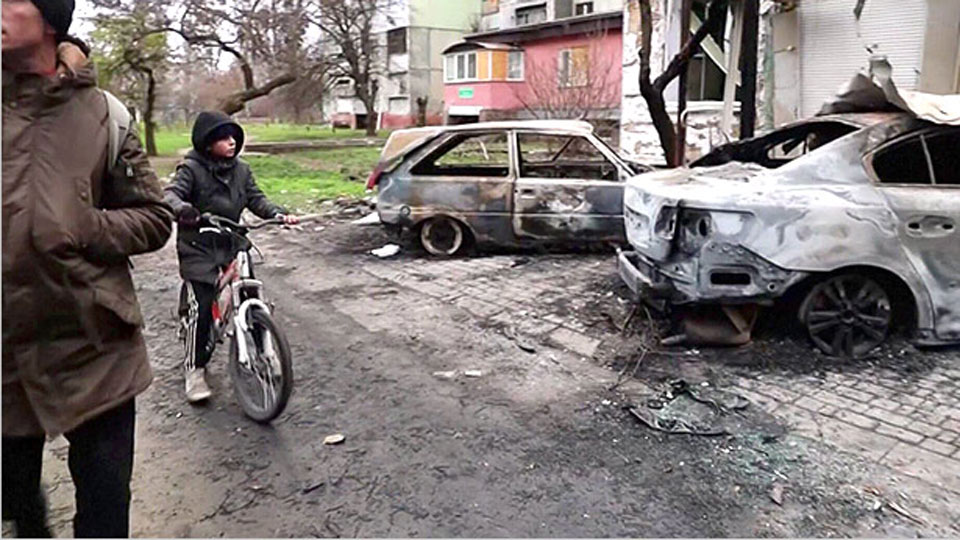
Some African countries have repeatedly abstained from condemning Russia in the United Nations General Assembly. Do you feel they misunderstand Russia's aggression?
Everything that I said about Asian countries equally applies to African countries and Latin American countries who are exercising the same policy. We will keep working on this because this is not a war between two different narratives -- one represented by Russia and another one represented by Ukraine -- where someone can say, okay, I listen to Russia and it makes sense to me, and then I listen to Ukraine and it makes sense to me, too. No, this is not like that. This is a war between truth represented by Ukraine and complete lies represented by Russia. Nations have to identify where they want to belong.
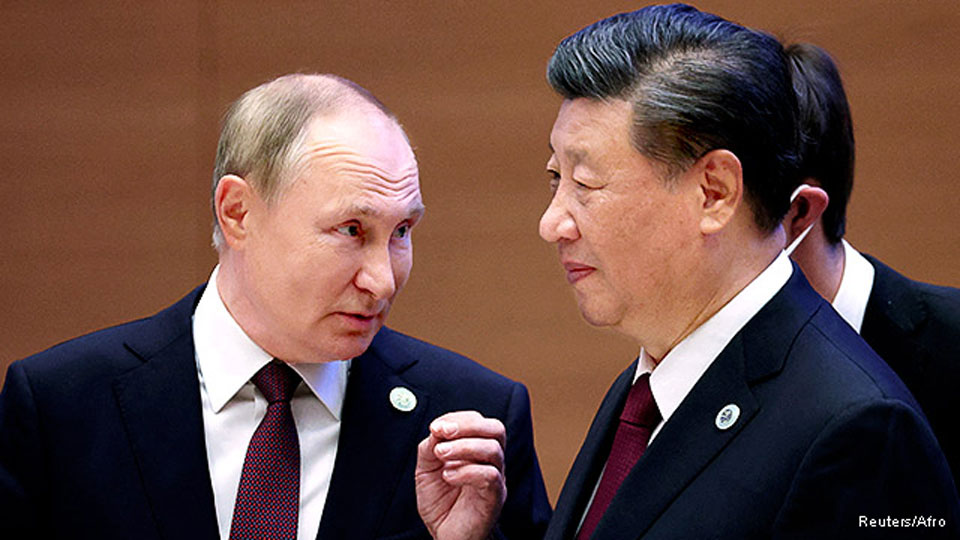
What is your understanding of China's position on the war?
I believe Chinese leadership understands the situation perfectly. And we heard two important messages from them. First, they never supported this war, and we don't have reasons not to believe them on this. Second, they spoke openly against any threat of the use of nuclear weapons by Russia. However, it is also true that China sees this war in a far broader context of its strategic interests. And whether we like it or not, Russia is an important partner, political first, for China. People tend to look from the perspective of markets of China, of Russia, or of Russian markets for Chinese products. But the most important thing for China, in my view, is to have Russia as a political partner in the global struggle.
But China's longstanding policy has been, and I'm confident will be, to respect territorial integrity. It's a cornerstone of their diplomacy. So they are in a very peculiar position because you cannot be saying that you are an adamant defender of territorial integrity while observing and excusing Russia violating territorial integrity. So relations with China require a balancing approach. It's important that China doesn't cross any red lines and does not support Russia's aggression against Ukraine.
Japan holds the G7 presidency next year. What roles do you expect Japan to play?
We expect that Japan will be taking a real lead on the issue of new sanctions against Russia coordinated by G7 and on economic relief, including energy relief provided by G7 to Ukraine. I have good, friendly relations with your foreign minister and my president spoke with your prime minister. So we count on you. We count on, not only your presidency, but on your true leadership in the G7 in the upcoming year.
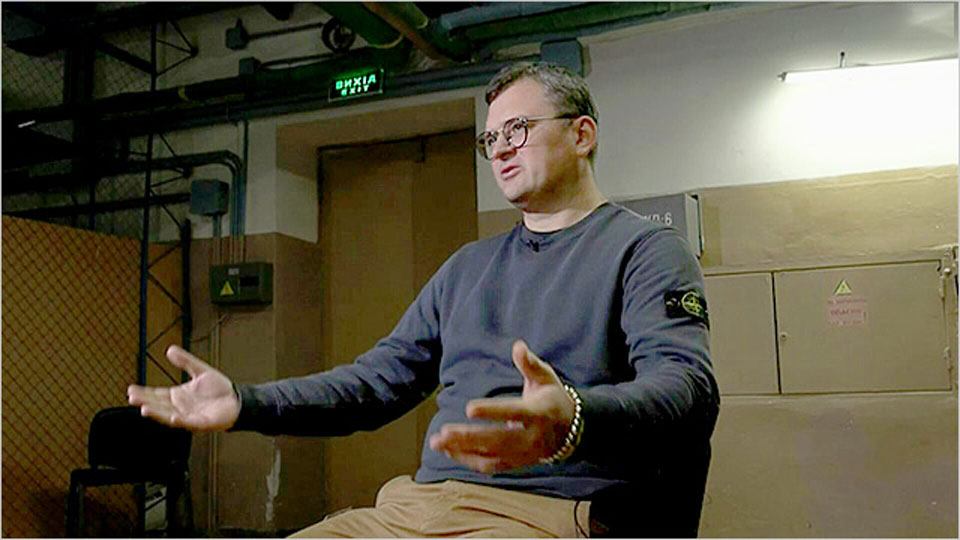
Are you planning to visit Japan soon?
With pleasure. I'm afraid I won't be allowed to go to enjoy. But we are open to bringing Ukraine-Japan relations to the next level and exchange visits. We will be happy to host [the] prime minister of Japan on any day convenient to him, even before the end of the year, if he can. He is more than welcome to come. And I'm not missing an opportunity to meet with Japanese foreign minister in different forums.
I've never been to Japan. And, in fact, a dream of my own son is to go to Japan. So I promised him that when the war ends, I will take him to Japan. He's a big fan of anime. You have a blockbuster about the assassin who changed his sword and promised to never kill anyone again. I watched it on Netflix. So I promised to my son that when the war ends, I will take him to Japan. I will keep my promise.
